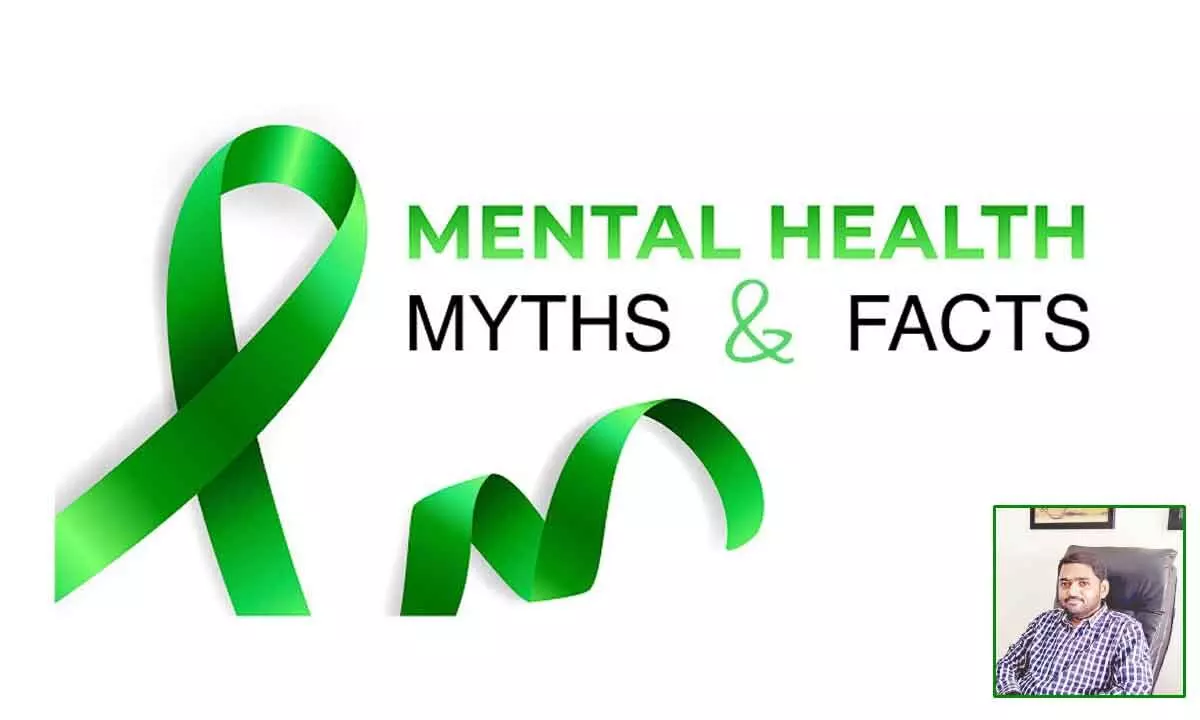Mental health awareness: Myths & Facts About Suicide

Dr G Shiva Kumar, Consultant Clinical Psychologist, talk about suicides and says suicides are not totally predictable; however, they can be prevented by assessing their personal, interpersonal, occupational, social and environmental risk factors
Suicide is one of the leading causes of death among young people. Suicides are not totally predictable; however, they can be prevented by assessing their personal, interpersonal, occupational, social and environmental risk factors.
It is very much needed for everyone to be sensitive to this issue and have a proper understanding, as a few of the misconceptions, wrong beliefs and attitudes would potentially be tough barriers for seeking help for people who are vulnerable to suicide.
Here are 10 common myths associated with suicide:
Myth 1: Talking with others about suicide will cause others to attempt suicide.
Fact: Most people who contemplate suicide are afraid to talk to others about it due to the stigma around suicide and fear of putting suicidal idea in others mind. However, it is not true; talking with others will give them an opportunity to express what they are going through and how they are feeling. By asking them a few questions, you may be better able to estimate suicidal risk in the person and take necessary preventive steps.
Myth 2: People who complete suicide act impulsively without any pre-plan.
Fact: Most suicide attempts are well thought about and planned several days or weeks before the attempt. Most people give at least a few clues and warning signs to another person in their life – maybe a friend or a family member that they are quitting.
Myth 3: People who suicide overreact to life events.
Fact: Problems in life cause significant distress to most people. However, how the problems and stressors are perceived makes a huge difference in how we respond or react to the situations. Stress some perceives as very real to them. Suicidal people are troubled by such life events, but how they perceive the crisis is just as predictive of suicidal behaviour as the actual crisis.
Myth 4: People who make suicidal statements don’t intend to complete suicide, so there is no need to worry.
Fact: When someone talks about suicide, you need to take those statements seriously and respond quickly, as the individual may be contemplating suicide. It is a strong signal that the person is reaching out for help.
Myth 5: People attempt suicide in anger or take revenge on people.
Fact: Most people who complete suicide would attempt in such a way that the suicide scene is not so traumatic or shocking to their loved ones. People resort to suicide because they feel they don’t belong to anyone or don’t want to be a burden to others, feeling that death will free their loved ones of the burden they put on them.
Myth 6: Suicide is not preventable.
Fact: Once you recognise the warning signs, suicides can be prevented. A suicidal mindset is often very temporary and treatable. People who want to suicide feel that there is no other option, but showing support, helping them find alternative options, taking them to a therapist and seeking proper counselling can be successfully prevented.
Myth 7: Suicides happen without any warning signs.
Fact: Most suicidal people give few clues and signs regarding their intentions to at least one other person in their life in the form of suicidal threats, statements, suicide notes, expressing hopelessness about the future, thoughts or feelings of not belonging, and displaying severe emotional pain or distress.
Myth 8: Someone who has failed suicidal attempts and survived will not attempt suicide again.
Fact: People who have a history of suicidal attempts (s) are actually at high risk for suicidal behaviour in the future. In most cases, people re-attempt suicide immediately after hospitalisation for a suicide attempt. With support from family and friends and effective counselling, those who have previously been at risk for suicide may go on to live long lives.
Myth 9: People who talk about / attempt suicide or for attention.
Fact: Maybe it appears that few people seek others’ attention by talking about suicide, however, they may also be reaching out for help in another way. People may attempt self-harm behaviours with no suicidal intention, but they may cause accidental deaths sometimes. Self-harm behaviours such as making superficial cuts on the wrists or mild over-medication may lead to more lethal attempts.
Myth 10: Most people who die by suicide don’t have plans.
Fact: Suicidal mindset is characterised by ambivalence. They go through severe conflict between their desire to live and their desire to quit. Until they attempt suicide, they may be doing almost all their routine tasks just as they did so far for their present and future.
(Email your concerns: [email protected], Phone Number: 9866256020)








